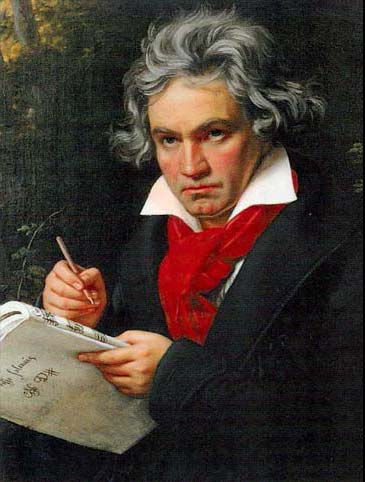The Chicago Ensemble goes back to its Beethoven roots with mixed results

Gerald Rizzer launched The Chicago Ensemble with a marathon all-Beethoven program.
The venerable chamber group returned to those roots Tuesday night at Fourth Presbyterian Church with a more modestly scaled program devoted to Beethoven, marking the Chicago Ensemble’s 40th anniversary season.
If the performances proved decidedly mixed, the event drew a respectable audience on a cold and blustery night, and proved a testament to Rizzer’s tenacity in keeping his adventurous project going through four decades.
Tuesday’s lineup offered a trio of works from each period of Beethoven’s development, moving backward from late to early. That also corresponded to the quality, which started unevenly and ended more strongly.
The program led off with Beethoven’s Violin Sonata No. 10, Op. 96, the composer’s final entry in the genre. Making his Chicago Ensemble debut was violinist Alin Cernaianu, who showed a pleasing, silvery timbre. At the piano, Rizzer launched the opening Allegro in gracious style and he and Cernaianu showed an easy rapport in their conversational exchanges, judging the ebb and flow skillfully, and bringing sensitive phrasing to the Adagio’s lyrical theme.
Still too much of the performance ranged between sturdy and stolid, with Cernaianu’s playing often metrical and intonation less than airtight. Rizzer put across the grazioso charm of the finale’s main theme but the ensuing variations were plain-spun and the violin playing cautious and bland, failing to take flight.
The evening’s centerpiece, Beethoven’s Cello Sonata No. 3 in A major, fared somewhat better with Rizzer and longtime ensemble collaborator Andrew Snow showing simpatico rapport. Yet there was more technical roughness here as well, with the cellist’s papery timbre lacking essential refinement amid repeated intonational excursions. Again, Rizzer’s sparkling keyboard work provided most of the fleeting pleasures with the vivace theme of the finale dispatched with elan.
The final work brought us back to the beginning, with Beethoven’s Piano Trio in G major, from his Opus 1. The shadow of his teacher Haydn hovers over Beethoven’s first published music in a style imbued with a light-hearted spirit and youthful vivacity.
While the straight-faced playing of Cernaianu and Snow failed to match the personality of Rizzer’s piano playing, the Trio received the most polished and successful performance of the evening. In the slow movement (“Largo con espressione”) the young Beethoven shows his gift for the indelible, long-limbed melody, and this lovely music received luminous advocacy by all. In the Presto finale Beethoven manages to out-Haydn Haydn, and Rizzer’s free-wheeling piano work captured the lightning verve and exhilaration of this delightful music.
The Chicago Ensemble’s next program will offer Aaron Copland’s Sextet, Debussy’s Rapsodie, Prokofiev’s Overture on Hebrew Themes and Joachim Raff’s Piano Quintet. Concerts take place 7 p.m. March 5 at UC’s International House and 7:30 p.m. March 7 at Fourth Presbyterian Church. thechicagoensemble.org.
Posted in Uncategorized




